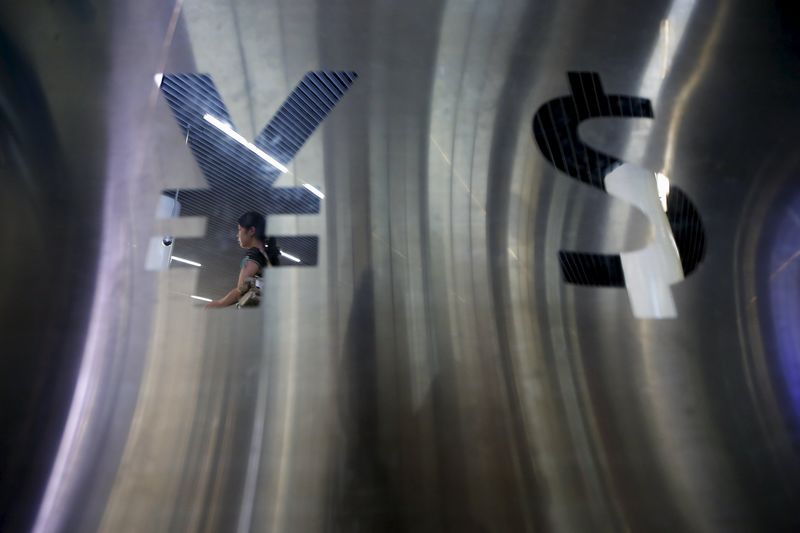(Adds more quotes, updates prices)
* Yuan slides further, offshore rates fall to record lows
* Yen near three-month high vs dollar, nine-month high vs euro
* Aussie, kiwi sink more than 1 percent on China worries
By Patrick Graham
LONDON, Jan 6 (Reuters) - China's yuan fell on Wednesday to its lowest since the 2010 opening of its offshore market, extending a slide that has unnerved global financial markets and sent currency investors rushing for the security of Japan's yen.
Big global banks forecast a 7 to 10 percent weakening of the yuan over the next 12 months, but it has begun the year with a decline of almost 2.5 percent in just three days. That almost matches August's one-off devaluation, which led to a global stock market selloff.
After the People's Bank of China again fixed its onshore rates for the yuan lower, the less-regulated offshore rates for the currency fell more than 1 percent against the dollar to a record low of 6.7315 in London trade.
"Everyone has been taken by surprise by the scale of the volatility this week. It's all driven by China," said Gian Marco Salcioli, head of FX sales at Italy's Intesa Sanpaolo (MI:ISP) Banca IMI (L:IMI).
"The question is how much of its reserves China is willing to put on the line (to defend the yuan)."
Intesa services big Italian and European exporters, who are among those international investors most exposed to Chinese growth, demand and moves in the yuan. Salcioli said as yet few of them had moved to sell.
"This movement has not drawn participation," he said. "That leads me to think there may be a lot of potential selling from corporates to come.
"We were advising them last year that China could be drawn into this sort of currency war at some stage. China itself may not want to devalue too aggressively, given the structure of its economy, but if the currency is falling, then obviously investments onshore are in danger."
The Australian and New Zealand dollars, among those most sensitive to Chinese growth and markets, both sank more than 1 percent on the back of the yuan move. AUD=D4 NZD=D4
Adding to the mix were reports of a possible nuclear test in North Korea, helping push the yen - historically one of investors' first choice in times of stress - to a near three-month high against the dollar.
The dollar fell more than half a percent to 118.36 yen. JPY= , while the euro dropped 0.7 percent to 127.13 yen EURJPY=R and 0.1 percent to $1.0738. EUR=
The other big play championed by many banks for this year are more broad gains for the dollar on the back of rising interest rates in the United States at a time when those elsewhere are rooted to zero or in negative territory.
The greenback has shown more signs of life this week but is still down around 1 percent since the start of December against a basket of currencies.
"The euro-dollar short is very interesting," said Cengiz Temel, head of FX services with Swiss currency manager Qaesta, whose strategy of betting on currency volatility returned 20 percent last year.
"We believe in the divergence story, that the Fed is going to hike more and the ECB will do more to ease policy. We expected more volatility this year, but we didn't expect it so soon."
